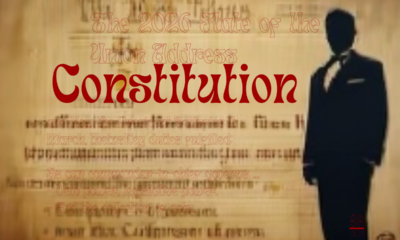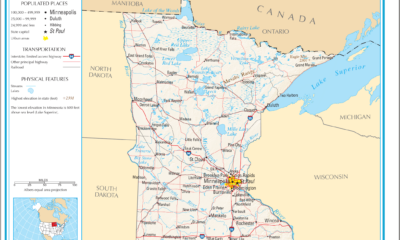Civilization
House Speaker: Biden Finally Admits ‘Crisis’ at Southern Border
President Joe Biden has finally admitted a crisis at the southern border, something he earlier refused to admit.
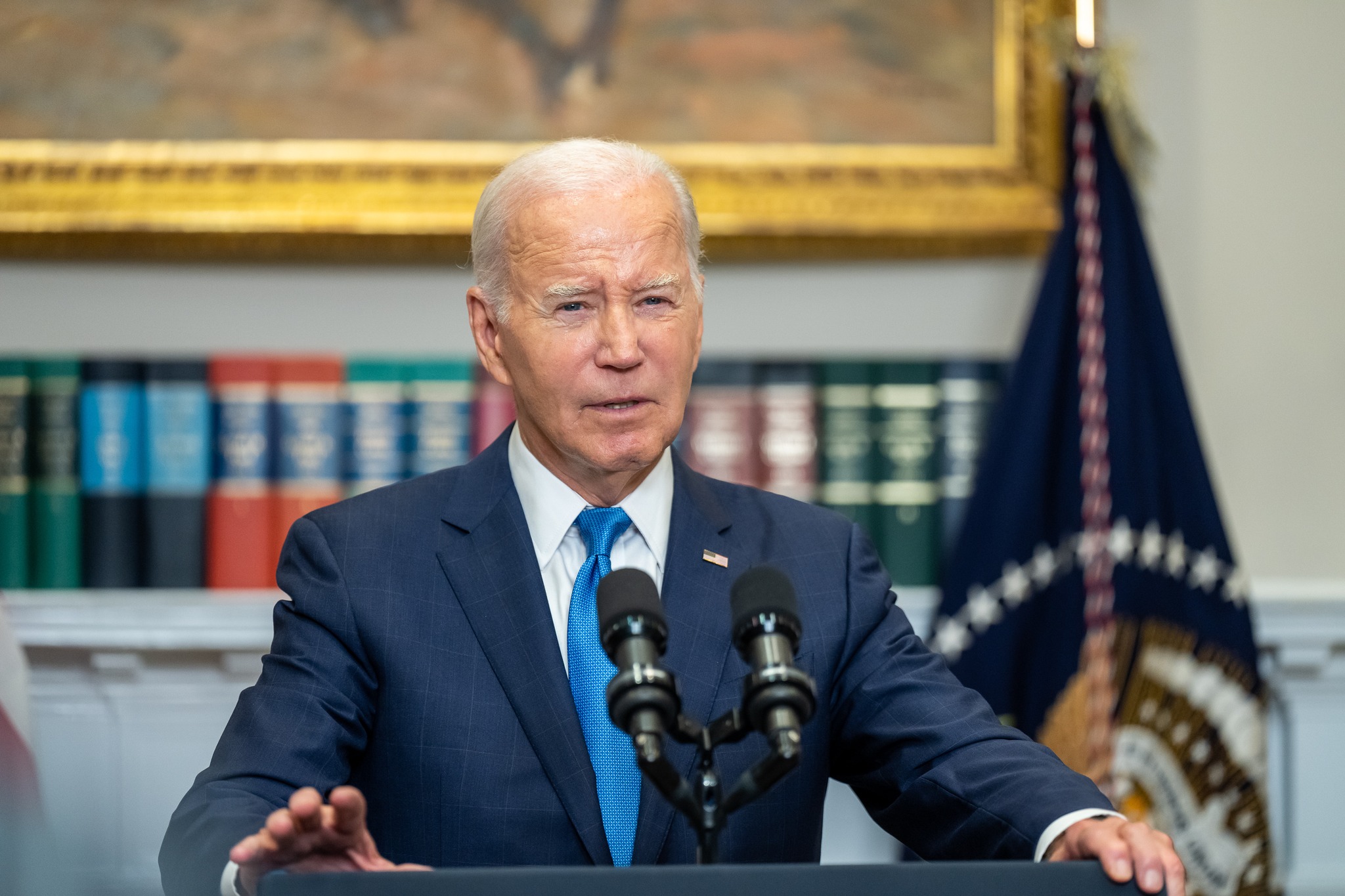
After years of insisting otherwise, the White House now calls the situation at the southern border “a crisis.” The administration had often rejected that phrase, preferring instead to describe the historic influx of migrants crossing illegally as “a challenge.”
That nomenclature is no more. In a notable shift, when asked about border crossings, White House spokesman John Kirby told RealClearPolitics Monday, “The president himself has talked about the fact that there is a crisis going on at the border.”
This was a reference to a statement President Biden made Friday when he said that his administration had been “negotiating” with Congress for “two months” to “finally address the border crisis.” A change in policy as well as rhetoric, the president promised the next day that, if given new powers by Congress, he would “shut down the border right now.”
House Speaker Mike Johnson was quick to spot the change in language. “Finally. It took three years for President Biden to admit there is a crisis at the southern border,” he told RealClearPolitics in a statement, before adding, “It’s not just a crisis, it’s a catastrophe.”
“Still, the president claims he has no executive authority to fix the disaster he has created,” the speaker continued. “That is demonstrably untrue. He can and should act immediately.”
House Republicans appreciate the change in rhetoric. Many oppose the border deal being hammered out in the Senate all the same, arguing that it would allow as many as 150,000 illegal crossings monthly, though supporters insist the number would be much lower. Oklahoma Sen. James Lankford, the leading Republican negotiator, has countered by calling the potential compromise “the most conservative border security bill in four decades.”
The president, for his part, is daring Republicans to reject the deal ahead of an election year. The White House now argues that it is Congress, not the president, who stands in the way of border security.
But when asked earlier this month, even as his team was in the middle of negotiations, if the situation had become a crisis, Biden replied, “No.” Less than two weeks later, the president updated his language. White House officials have followed suit.
According to U.S. Customs and Border Protection data, December saw a record 302,034 encounters on the southern border, bringing the 2023 total to 2.47 million. Numbers for the year before were roughly similar, with 2.37 million total encounters, though the administration insisted at the time that the surge did not amount to a crisis.
The change then was sudden. Just three weeks ago, Department of Homeland Security Sec. Alejandro Mayorkas stuck to the established boilerplate. Asked about the influx in a Fox News interview, what Bret Baier described as “eight Rose Bowls full of illegal immigrants” in three months, Mayorkas still insisted that the situation was not a crisis but instead “a challenge that we have been addressing vigorously.”
This was more than an idle word choice. Mayorkas told Sharyn Alfonsi of CBS News’ “60 Minutes” last year that he would not say the word “crisis” because he has “tremendous faith in the people of the Department of Homeland Security. And a crisis speaks to me of a withdrawal from our mission. And we are only putting more force and more energy into it.”
More energy and force could come in the form of a border deal if Congress sends legislation to Biden’s desk, a scenario that increasingly looks unlikely. According to Lankford and other Senate Republicans who support the draft legislation, it would lead to a much more muscular response to illegal immigration – a change from the Biden administration’s approach to date.
“I like to think it’s because I’m a nice guy,” Biden said at his inaugural press conference as the number of encounters at the southern border started to rise, “but it’s not. It’s because of what’s happened every year.” He added that, in terms of total crossings, “nothing has changed.” His policy, however, has charted a new direction.
The day he took office, Biden reversed former President Trump’s “remain in Mexico” policy, which required asylum seekers to await their court dates there before crossing over to the U.S. Biden also largely halted construction on his predecessor’s border wall. More recently, the president finds himself in a stand-off with Texas after the state erected razor wire along the Rio Grande.
This is not the first time Biden has described the border as being a “crisis.” He used the word in April 2021 when talking to reporters, only for the White House to quickly clarify that he was referring to conditions in Northern Triangle countries that migrant children were fleeing, not the situation in the U.S.
In March of that year, then-White House press secretary Jen Psaki briefly described the situation as a “crisis on the border” but later clarified, telling RCP during that same press briefing that the administration had not updated its policy and there were instead “challenges on the border.”
This article was originally published by RealClearPolitics and made available via RealClearWire.
Philip Wegmann is White House Correspondent for Real Clear Politics. He previously wrote for The Washington Examiner and has done investigative reporting on congressional corruption and institutional malfeasance.
-
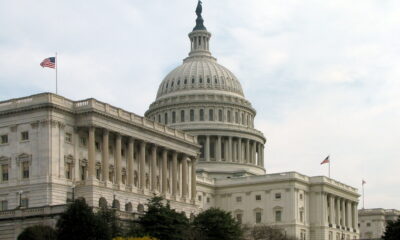
 Civilization5 days ago
Civilization5 days agoEnd the Filibuster – Or Stop Pretending To Govern
-

 Civilization4 days ago
Civilization4 days agoA Better U.S. Strategy for Greenland Than Annexation
-

 Education4 days ago
Education4 days agoIgnoring the Science: The Curious Case of Cell Phone Bans
-

 Executive3 days ago
Executive3 days agoWaste of the Day: Utah University Trustees Don’t Know Their Job
-

 Education5 days ago
Education5 days agoA Solid Core Enlivens Free Speech and Viewpoint Diversity
-

 Executive4 days ago
Executive4 days agoWaste of the Day: $8 Water Filter Costs the Government $156
-
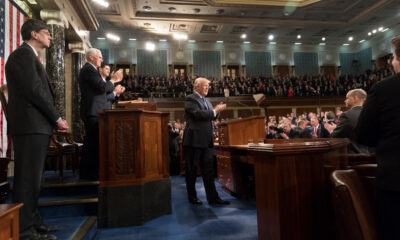
 Civilization3 days ago
Civilization3 days agoTrump’s Longest Speech, His Shortest Margin for Error
-

 Executive2 days ago
Executive2 days agoWaste of the Day Throwback Thursday – USDA Advertised Caviar



